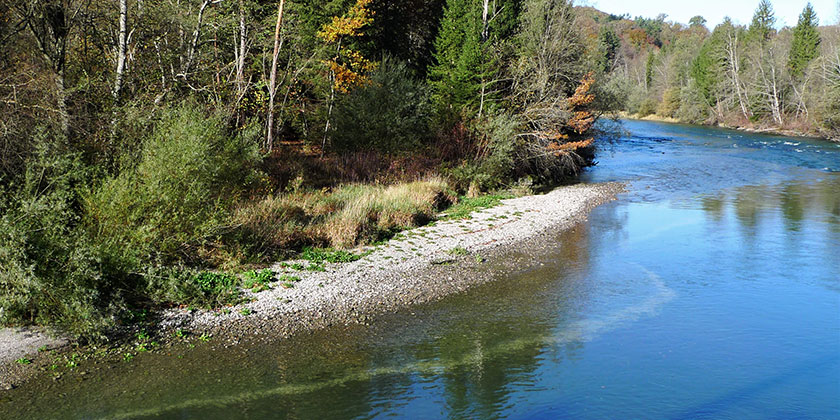Department Surface Waters - Research and Management
Hydropeaking mitigation – Synergies between research and practice

The exploitation of hydropower is extensive across Switzerland and contributes an important share to the security of national energy. Reservoirs allow for flexible power production and can respond
rapidly to seasonal or diurnal fluctuations in energy demand. On-demand production of power leads to hydropeaking in the receiving river, i.e. to abrupt fluctuations in flow and water level. Hydropeaking causes problematic effects in the river ecosystem as habitats undergo regular fluctuations, young fish can strand on the newly dry gravel bars and large numbers of insect larvae can be flushed away from the river bottom.
The revised Swiss Water Protection Act demands the mitigation of hydropower plants where hydropeaking causes serious ecological harm. Around 100 hydropower plants have been classified as priority by the Cantons and have to be mitigated by 2030.
However, hydropeaking mitigation is a challenging task. A close collaboration across all stakeholders involved is required in order to use available resources in an efficient and effective way. Sharing experiences and collaborative learning are of particular importance.
In our research project, which is funded by the Federal Office for the Environment, we support the collaboration between science and practice, particularly by investigating the following three topics:
- Habitat persistency and dynamics in hydropeaking rivers. The goals is to quantify, with a time-explicit approach, the impacts of hydropeaking frequency on habitat dynamics at the patch scale.
- Invertebrate drift at the patch scale. To improve our mechanistic understanding of invertebrate drift, we use a portable flume to bridge the gap between artificial flume experiments and field studies.
- Morphological measures for hydropeaking mitigation. To better understand the effectiveness of punctual morphological measure, we identify aspects that should be considered for invertebrate habitat improvement.


